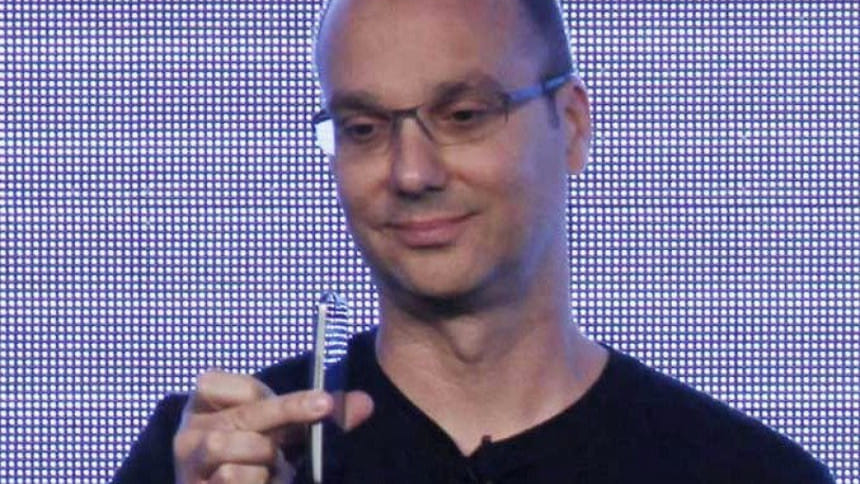The creator of Android thinks the next big thing isn't in mobile

Andy Rubin, the "father of android," on his 50th birthday in October 2014, announced that he was passing off the division and leaving Google.
"What am I going to do for the next 10 years of my life? Am I going to fight for 1 percent market share, or am I going to make 10 more Androids?" Rubin said of his decision to leave, reports the Business Insider.
After taking a break to mow lawns, he joked, Rubin has returned to tech as a venture capitalist with a passion to look for the next frontier beyond the market-dominating Android operating system he created.
Rubin created Playground Global, a new venture-capital fund and hardware incubator that closed a $300 million round on Monday. Part of its mission is betting on the next big thing, "the thing beyond the mobile or the tablet," Rubin said.
"Mobile isn't going away," Rubin said, assuaging an audience gathered at the Code/Mobile conference in Half Moon Bay, California.
"There is a point in time — I have no idea when it is — it won't be in the next 10 years, or 20 years — where there is some form of AI, for lack of a better term, that will be the next computing platform."
With the rise of connected devices like smart thermostats and door locks, the world increasingly generates data. Simultaneously, computers are getting better at absorbing that data, learning from it, and making decisions such as whether to lower or raise the heat in your house, Business Insider reported.
"When you spend all your time interacting with a screen, you have to start thinking about things that don't have a screen," he said.
Take ConnectedYard, a startup Rubin has already put money into. The company's pHin device, a teardrop-shaped floating pod, is designed to measure PH in your pool. It may seem like a small idea, but the device isn't just feeding data into your phone passively, Rubin said.
Instead, the startup orders pellets and delivers them via FedEx so people can dump them in their pool to take corrective action without the owner needing to even know what's wrong in the first place.
It's not easy, though, to get from sensing that a pool is out of balance or that the heat is on too high to knowing what steps to take to get it back to normal.
"The thing that's going to be new is the part of the cloud that is forming the intelligence for all of the information that is coming back," Rubin said.

 For all latest news, follow The Daily Star's Google News channel.
For all latest news, follow The Daily Star's Google News channel. 



Comments